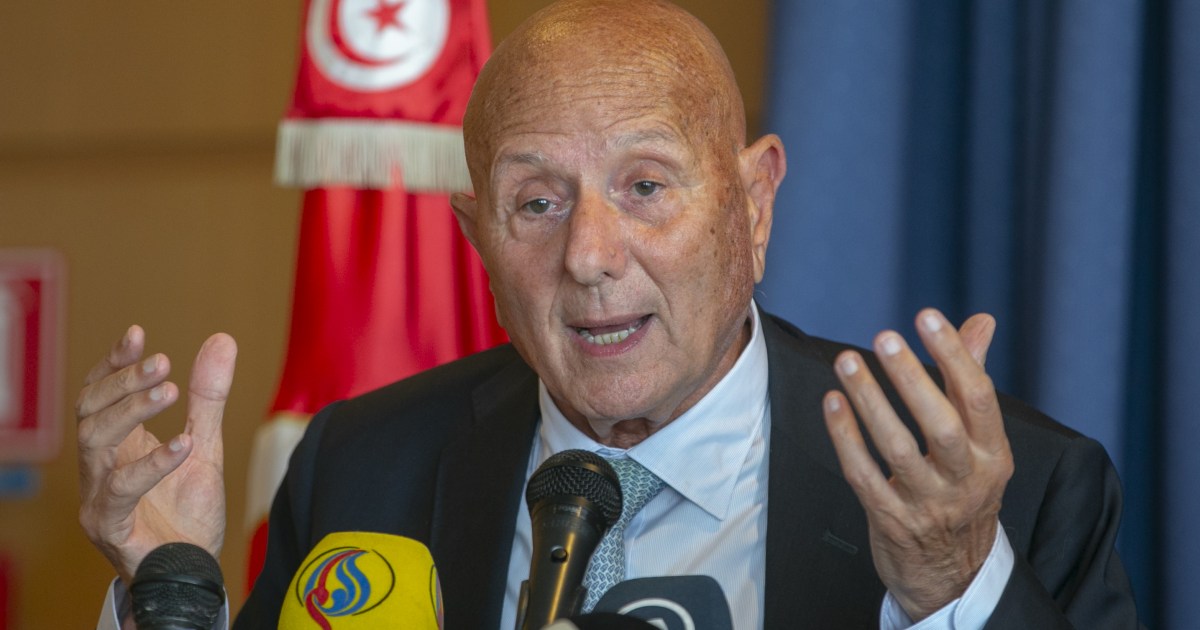The head of the political body of the Tunisian "Amal" party, Ahmed Najib Chebbi, said that the opposition "National Salvation Front", which he called for its formation previously, is currently in the process of being established, while the US State Department has expressed its deep concern about Tunisian President Kais Saied's decision to restructure the independent supreme body. unilateral elections.
Chebbi explained, in a press conference held yesterday, Tuesday, that the National Salvation Front includes 10 different party and political components so far, adding that the main goal of this front will be to call for a national dialogue conference and support a transitional government for salvation.
The head of the political body of the Amal Party added that President Said's decisions taken on July 25 did not provide solutions to the crises in Tunisia, but rather made them more complicated, due to presidential decrees that threaten investors.
He added that the result of the Tunisian president's decisions was an external blockade, which in particular aggravated the economic and social crisis.
On February 18, during a gathering of political and parliamentary figures organized by the "Citizens Against the Coup" (popular) campaign, Chebbi called for the formation of a front in the name of national salvation.
Five parties joined the front: the Ennahda Movement, Qalb Tounes, the Dignity Coalition, the Tunisian Movement of Will and the Amal Party, in addition to the "Citizens Against the Coup" campaign, the Gathering for Tunisia initiative, and a number of parliamentarians.
Since July 25, 2021, Tunisia has witnessed a severe political crisis when its president, Kais Saied, began exceptional measures, including dissolving parliament and the Judicial Council and issuing legislation by presidential decrees.
Election Commission
In a related context, US State Department spokesman Ned Price said that "the existence of an independent electoral authority in Tunisia is critical, given its role stipulated in the constitution with regard to the referendum and the upcoming parliamentary elections."
Price, during a press conference on Tuesday, renewed Washington's call for what it described as a comprehensive and transparent political and economic reform process in the country, with the representation of civil society, labor unions and political parties.
🚨 Exclusive: The new logo of the Independent High Authority for Elections after the revision of its basic law and its issuance today in the official gazette.
Iɴsᴛᴀɴᴄᴇ Sᴏᴜᴍɪsᴇ Iʟʟᴇ́ɢɪᴛɪᴍᴇʟʟᴇ́ɢɪᴛɪᴍᴇs s ʟᴇᴄᴛɪᴏɴs pic.twitter.com/8DGS3U5ifn
— I WATCH Organization (@IWatchTN) April 22, 2022
A presidential decree was issued last Friday in the Official Gazette in Tunisia to revise the Basic Law of the Independent High Authority for Elections, under which the President of the Republic will appoint the members of the Authority's board and its head.
The Independent High Authority for Elections is a constitutional institution that has been supervising the elections since October 2011. It consists of 9 "independent, neutral and qualified" members, who are elected by Parliament by a two-thirds majority, and perform their duties for one period of 6 years, and one-third of its members are renewed every two years.
Tunisian parties rejected the presidential decree on the High Elections Authority, and considered it a return to the era of fraud and falsification.
In a statement issued by the Coordination of Social Democratic Parties, which includes the Democratic Current, the Republican Party, and the Ettakatol for Labor and Freedoms, the parties considered that the decision "marks Tunisia's return from the Big Gate to the era of fraudulent elections and falsifying the will of the voters."

